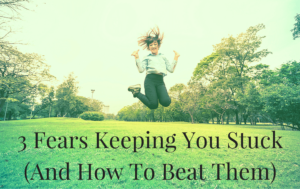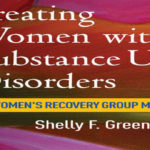 reblogged from Kate at The Sober School
reblogged from Kate at The Sober School
Fear is a bitch sometimes. It’s a natural instinct, something designed to keep us safe and help us survive. It can be a brilliant internal warning system. But when it comes to sobriety – a major lifestyle change, whichever way you look at it – fear can often get in the way. It’s easy to find yourself trapped in your comfort zone by a misguided survival instinct that wants to keep you firmly in the place you want to get out of.
“Everything you want is on the other side of fear.”
I love that quote. We often feel fear around the things we really need to do. If we’re to move forward, we have to find a way of outfoxing that fear. Getting clear on some of the facts – the truths about sobriety – is a great place to start.
Here are three common fears about sobriety, busted:
 “I’ll never have fun again.”
“I’ll never have fun again.”
You have to get clear on what’s really generating fun in your life. Of course, we’ve all had nights where we’ve drunk a lot and had a great time. It’s the law of averages. Plus, there is a certain camaraderie that comes with taking a drug in a group setting. But, haven’t we also had nights that were terrible and boring, no matter how much alcohol was consumed? Nights where we got tired and maudlin and argumentative? Surely, if alcohol was a magic fun pill that guaranteed laughs and LOLs it would work every single time?
I think we have been trained (through adverts, popular culture and the people around us) to give booze waaay too much credit for the things that we provide ourselves. Having a good time isn’t about having the right drink in your hand – it’s got a lot more to do with the people you’re with, the mood you’re in, how you’re feeling, what you’re wearing, the music etc, etc.
When you’re not drinking, you become much more aware of how you really feel. So yeah, some sober nights might be crap, but that’s because life is like that sometimes. Some parties are better than others. There will be other times that are truly brilliant – and you will have the satisfaction of knowing that everything you feel is 100% genuine.
 “I won’t have a coping mechanism.”
“I won’t have a coping mechanism.”
We think alcohol is a coping mechanism because it takes the edge off and helps distract us in the moment, at the height of our stress/anger/misery. But what we forget is that booze doesn’t solve problems. It certainly doesn’t make us feel better in the long run. Be honest – if alcohol really was a half decent coping mechanism then you wouldn’t need to be reading this.
Drinking is the equivalent of burying your head in the sand for a few hours. Sure, it provides a temporary escape from the realities of life. But when you sober up, those same stressors will still be there. If anything, they might have got worse in your absence – and now you have to face up to things whilst hungover.
Drinking puts you on an emotional rollercoaster that makes everything a little harder to deal with. The good news is that when you stop drinking, stress can become easier to deal with. Your head is clearer and you’re not hungover or distracted; you become better at tackling problems head on, which in turn reduces them in the long term. And you discover much better, healthier coping mechanisms. Whether it be exercise, sleep, meditation, talking or the occasional bucket of ice cream – they are all better than turning to wine.
 “I don’t have the strength or willpower to do it.”
“I don’t have the strength or willpower to do it.”
Think you’re not strong enough? No problem. You do not need the discipline of an Olympic athlete to stop drinking. (If sobriety was all about willpower then there’s no way I’d still be doing it.)
The main problem here is the story we tell ourselves about alcohol. And by ‘we’ I mean everyone – society, popular culture, our friends, family, the people who we love and respect. There is an ingrained belief that alcohol is ‘good’ and an essential part of life. When you view sobriety from that perspective, stopping drinking will always feel like deprivation.
So… what if you change your viewpoint? What if you start thinking about alcohol in the same way you think about cigarettes, or painkillers or legal highs? These are all addictive substances, just like alcohol. Some of them do more or less the same job. The only difference is that we don’t romanticise or normalise these addictions. We see them for exactly what they are.
You can change your thinking around this. Decide you’re going to be a non-drinker and then seek out the right tools, knowledge, support and advice. It does take work early on to shift your thinking and reframe your relationship with booze – but it can be done.









